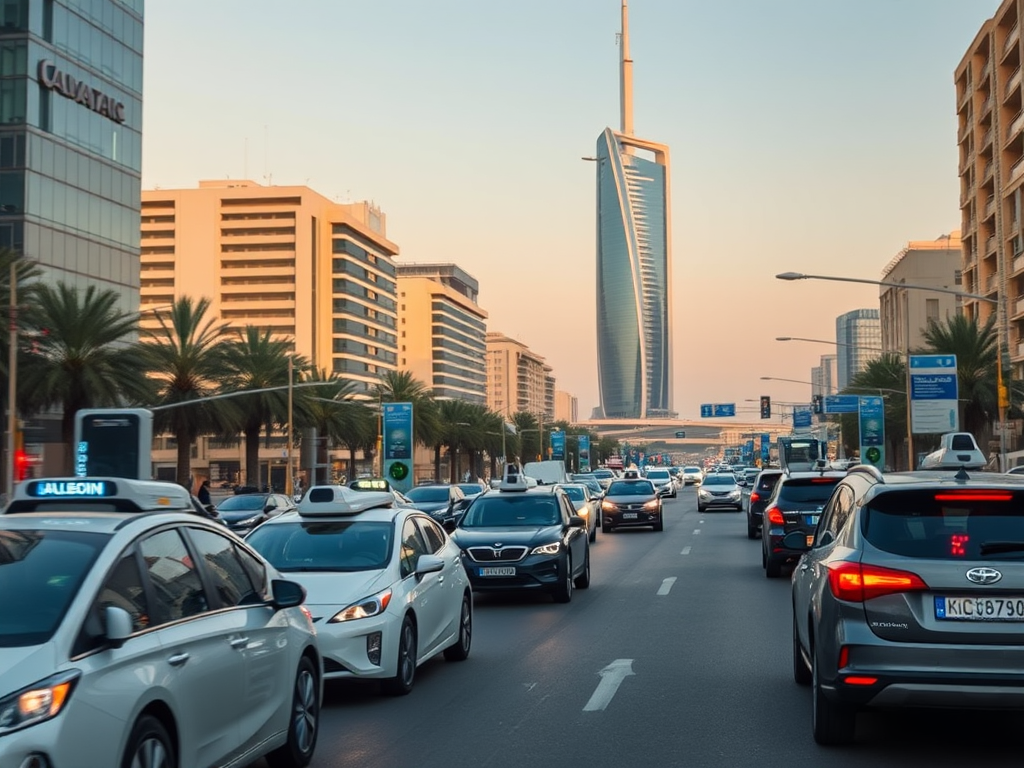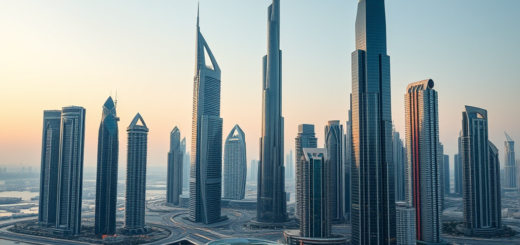Investment Opportunities in Dubai’s AI-Driven Smart Cities
Dubai is rapidly transforming into a global hub for innovation and technology, spearheaded by its ambitious smart city initiatives. These projects, fueled by artificial intelligence (AI), present significant investment opportunities across various sectors. Investors looking to capitalize on the rising trend of smart cities will find Dubai’s unique ecosystem particularly attractive. By integrating advanced AI technologies, Dubai aims to enhance urban living while offering numerous avenues for growth. This article explores the investment prospects that Dubai’s AI-driven smart cities have to offer, outlining key sectors, commercial opportunities, and the benefits of entering this dynamic market.
Overview of Dubai’s AI-Driven Smart City Initiatives

Dubai’s commitment to becoming a smart city is evident in its comprehensive strategy, which includes several projects that harness the power of AI. The emirate’s vision encompasses not only technological advancements but also a sustainable approach to urban development. The government of Dubai has set a target to ensure that all city services are Smart by 2021. With initiatives like the Dubai Smart City Strategy and the Dubai 4.0 initiative, there is a clear roadmap for embedding AI into public services, infrastructure, and citizen engagement. The key areas of focus include mobility, healthcare, energy, and public safety, which all present lucrative investment opportunities. Understanding how these initiatives are structured can help investors identify the most promising areas for investment.
Investment opportunities in Dubai’s AI-driven smart cities are vast, but some key sectors stand out as particularly promising. Here’s a breakdown of these sectors, along with their investment potential:
- Transportation: Dubai is working on smart transport systems, including autonomous vehicles and smart traffic management solutions, which are ripe for investment.
- Healthcare: The integration of AI in healthcare can lead to personalized treatments and improved patient services, supporting investments in health tech startups.
- Energy: Renewable energy projects are becoming increasingly important, with AI being used to optimize energy consumption and distribution.
- Telecommunications: Advanced telecommunications infrastructure is vital for supporting smart city applications, offering investment avenues in network technology.
- Real Estate: Smart buildings and eco-friendly developments are attracting investors looking for innovative residential and commercial properties.
Benefits of Investing in Dubai’s Smart Cities

Investing in Dubai’s AI-driven smart cities offers numerous advantages. First and foremost, the Dubai government provides robust support for foreign investors, with favorable economic policies and incentives that make entry easier. Additionally, the city’s strategic location as a gateway between East and West enhances its appeal for businesses looking to expand regionally. Another advantage lies in Dubai’s focus on sustainability and innovation, which aligns with global investment trends towards environmental responsibility. Furthermore, the burgeoning technology ecosystem is supported by numerous incubators and accelerators that nurture startups and foster innovation. These factors combine to create a business-friendly environment that is both secure and lucrative for investors.
Challenges and Considerations for Investors
While Dubai presents a wealth of opportunities, investors should also be aware of certain challenges. Competition in the tech and investment landscape can be fierce, with numerous players vying for market share. Understanding local regulations is crucial, as compliance with laws regarding data protection and privacy can be complex, particularly in AI applications. Additionally, the transient nature of the expatriate workforce can impact business continuity; thus, companies should focus on retaining talent and expertise. Last but not least, staying abreast of technological advancements and market shifts is essential for maintaining a competitive edge. Overall, a well-researched approach to these challenges will be beneficial in maximizing the return on investment in Dubai’s smart cities.
Conclusion
Dubai’s AI-driven smart cities are not merely a futuristic vision; they are a rapidly evolving reality that offers substantial investment opportunities. The convergence of advanced technologies with a supportive government framework lays a strong foundation for positive investment outcomes. By focusing on key sectors such as transportation, healthcare, energy, telecommunications, and real estate, investors can position themselves effectively in this burgeoning market. Although challenges exist, careful navigation through the regulatory landscape and a keen understanding of competitive dynamics will lead to successful ventures. As Dubai continues to innovate, the potential for growth within its smart city initiatives remains immense, making it an appealing destination for forward-thinking investors.
Frequently Asked Questions
1. What are smart cities?
Smart cities utilize digital technologies, including AI, to enhance performance, engage with citizens, and streamline urban governance, ultimately improving the quality of life for residents.
2. What benefits do investors get from Dubai’s smart city initiatives?
Investors can benefit from government incentives, access to an innovative ecosystem, strategic geographical positioning, and alignment with sustainability trends.
3. Which sectors are considered most promising for investment in Dubai’s smart cities?
The most promising sectors include transportation, healthcare, energy, telecommunications, and real estate, each offering unique growth opportunities.
4. Are there any challenges when investing in Dubai’s AI-driven initiatives?
Challenges include navigating local regulations, competition in a growing market, recruiting and retaining talent, and keeping up with rapid technological advancements.
5. How can investors conduct successful investments in Dubai’s smart city projects?
Investors can succeed by conducting thorough market research, understanding regulations, networking with local businesses, and leveraging government support for foreign investments.


